
With Charles Schwab, you can operate in the after-hours market, giving you the flexibility to react to breaking news and find appealing prices outside of regular market hours. This extended trading period allows you to capitalize on market-moving events and make informed investment decisions. However, keep in mind that after-hours trading involves unique risks, such as lower liquidity and wider spreads. To navigate these risks, it's essential to understand market dynamics and adapt your approach accordingly. As you explore Schwab's after-hours trading, you'll discover the benefits and strategies for maximizing your returns in this unique market environment.
- Cuadro Descriptivo
- Charles Schwab Enables After-Hours Trading
- Understanding After-Hours Market Dynamics
- How to Trade After Hours with Schwab
- Key Considerations for Schwab Traders
- Comparing After-Hours Trading Platforms
- Real-Life Examples of Successful Trades
- FAQs on Schwab After-Hours Trading
- Frequently Asked Questions
- Can I Use Stop-Loss Orders During After-Hours Trading?
- Is After-Hours Trading Available for All Types of Securities?
- Can I Cancel or Modify Orders During After-Hours Trading?
- Do I Need a Special Account to Trade After Hours With Charles Schwab?
- Are There Any Additional Fees for After-Hours Trading With Charles Schwab?
- Conclusion
Cuadro Descriptivo
After-Hours Trading Comparison
The following table compares the key features of after-hours trading with Charles Schwab, highlighting the benefits and considerations of trading outside regular market hours.
| Feature | Description | Benefits | Considerations |
|---|---|---|---|
| Trading Hours | 4 p.m. to 8 p.m. ET | Extended trading hours | Limited liquidity |
| Flexibility | Trade outside regular hours | Convenience, react to news | Wider spreads |
| News Reaction | React to breaking news | Take advantage of market changes | Higher volatility |
| Price Discovery | Find appealing prices | Better prices, increased efficiency | Lower liquidity |
| Risk Management | Understand after-hours dynamics | Minimize losses, maximize gains | Higher risk |
| Platform Availability | 24/7 online trading platform | Trade anytime, anywhere | Technical issues possible |
| Trade Execution | Set up and execute trades online | Easy trade execution | Slower execution possible |
| Market Dynamics | Lower liquidity, wider spreads | Be cautious of market conditions | Higher risk |
| News Impact | React to news and events | Take advantage of market changes | Higher volatility |
| Price Volatility | Prices may fluctuate rapidly | Be prepared for market shifts | Higher risk |
| Liquidity Risk | Lower liquidity in after-hours | Be cautious of market conditions | Higher risk |
| Spread Risk | Wider spreads in after-hours | Be cautious of market conditions | Higher risk |
| Technical Issues | Technical issues possible | Have a backup plan | Technical difficulties |
| Trader Experience | Experience with after-hours trading | Better decision-making | Higher risk |
| Market Knowledge | Understand market dynamics | Make informed decisions | Higher risk |
| Risk Tolerance | Understand personal risk tolerance | Set limits, manage risk | Higher risk |
| Trade Size | Manage trade size effectively | Minimize losses, maximize gains | Higher risk |
| Stop-Loss Orders | Use stop-loss orders effectively | Minimize losses | Higher risk |
| Market Orders | Use market orders effectively | Quick trade execution | Higher risk |
| Limit Orders | Use limit orders effectively | Better prices, increased efficiency | Higher risk |
| Trading Strategy | Develop a trading strategy | Make informed decisions | Higher risk |
_*"This table compares the benefits and considerations of after-hours trading with Charles Schwab, highlighting the importance of understanding market dynamics, risk management, and technical considerations when trading outside regular market hours."*_
Charles Schwab Enables After-Hours Trading
With Charles Schwab, you can take advantage of after-hours trading, allowing you to react quickly to breaking news or fresh information outside regular market hours. This extended trading session provides you with more flexibility and convenience.
When trading after hours with Charles Schwab, you'll need to weigh the trading fees associated with this service. Be sure to review the fees and broker security measures in place to safeguard a smooth and secure trading experience.
Lee También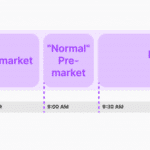
Charles Schwab prioritizes your security, using advanced technology and robust security protocols to protect your accounts and personal information. By understanding the trading fees and security measures, you can make informed decisions and trade with confidence in the after-hours market.
Understanding After-Hours Market Dynamics
As you consider trading after hours with Charles Schwab, it's essential to understand the unique dynamics at play.
You'll need to be aware of the risks involved, such as lower liquidity and wider spreads, as well as the benefits, like being able to react quickly to breaking news and finding appealing prices.
Risks in After-Hours Trading
When you trade after hours, you're stepping into a market that's inherently riskier than its daytime counterpart, where liquidity is scarce and price swings can be extreme.
As an investor, you need to be aware of the risks involved, especially with regards to risk management.
Market volatility is a major concern, as the after-hours market is thinly traded, leading to severe price fluctuations.
Lee También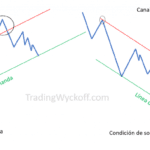
Additionally, you'll face stiff competition from institutional investors, who've more resources at their disposal.
It's essential to have a solid understanding of the after-hours market dynamics to navigate these risks effectively.
Benefits of Trading After Hours
You can capitalize on the benefits of after-hours trading, such as reacting quickly to breaking news or finding appealing prices, if you're willing to navigate the risks. Trading after hours provides flexibility and market opportunities that may not be available during regular trading hours. With after-hours trading, you can:
| Benefit | Description | Importance |
|---|---|---|
| React to breaking news | Trade immediately on new information | High |
| Find appealing prices | Take advantage of market opportunities | Medium |
| Enjoy flexibility | Trade at times that suit you | High |
| Access extended trading hours | Trade beyond regular hours | Medium |
| Increase market opportunities | Trade during times of high market activity | Medium |
How to Trade After Hours with Schwab

Now that you understand the basics of after-hours trading, it's time to explore how to trade after hours with Charles Schwab.
You'll need to set up an after-hours trade, which involves specifying the details of your trade, including the security, quantity, and price.
Setting Up an After-Hours Trade
To set up an after-hours trade with Charles Schwab, you'll need to access their online trading platform, which is available 24/7, allowing you to execute trades even outside regular market hours.
Lee También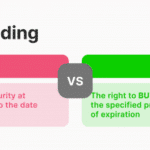
Trade Preparation is key, so make sure you've done your research and have a clear understanding of the market before placing an order.
When it comes to Order Timing, consider the volatility of the after-hours market and plan your trades accordingly.
With Schwab's platform, you can set up your trade during the post-market session, typically between 4 p.m. and 8 p.m. ET.
Keep in mind that liquidity may be lower during this time, and spreads may be wider.
Be cautious of these risks and adjust your strategy to suit your trading goals.
Strategies for Schwab After-Hours Trading
When developing a strategy for after-hours trading with Schwab, it's essential to weigh the unique characteristics of the post-market session, including lower liquidity and wider spreads.
Lee También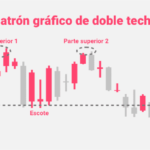
You'll need to adapt your approach to navigate these challenges. Consider market sentiment, as after-hours trading can often be driven by emotional reactions to news and events.
Trading psychology plays a significant role, as fear and greed can dominate decision-making. To succeed, focus on your trading goals, set clear limits, and avoid impulsive decisions.
Stay informed, but avoid emotional reactions to news. By understanding the intricacies of after-hours trading and managing your emotions, you can make informed decisions and capitalize on opportunities presented by Schwab's after-hours trading platform.
Key Considerations for Schwab Traders
As you prepare to trade after hours with Charles Schwab, it's essential to weigh a few critical factors.
You'll need to understand the fees associated with extended-hours trading and navigate the lower liquidity that comes with trading outside regular market hours.
Understanding the Fees
With Charles Schwab, understanding the fees associated with after-hours trading is essential, since they can eat into your profits if you're not careful.
Lee También Dominar los Patrones de Doble Techo y Fondo en los Mercados Financieros
Dominar los Patrones de Doble Techo y Fondo en los Mercados FinancierosYou need to be aware of the fee structures and commission rates that apply to your trades. Schwab's fee structure is generally competitive, but it's vital to review the details to avoid surprises.
For instance, you may incur additional fees for extended-hours trading, and commission rates may vary depending on the type of trade.
By understanding these fees, you can make informed decisions and maximize your returns. Take the time to review Schwab's fee schedule and plan your trades accordingly.
This will help you navigate the after-hours market with confidence and minimize unnecessary costs.
You'll face thinner markets and reduced liquidity in after-hours trading, which can lead to larger spreads and higher trading costs, so it's essential to adjust your strategy accordingly.
This is where market volatility and trading psychology come into play.
To navigate lower liquidity, consider the following:
Be prepared for higher trading costs: With fewer buyers and sellers, you may face higher spreads and lower liquidity.
Keep a close eye on market volatility: After-hours trading can be more volatile, so be prepared for sudden price swings.
Manage your risk: Consider hedging strategies to minimize potential losses.
Stay informed and adaptable: Stay up-to-date with market news and be prepared to adjust your strategy as needed.
Comparing After-Hours Trading Platforms

As you consider trading after hours with Charles Schwab, you'll want to compare their platform with those of their competitors.
You'll need to evaluate factors like fees, trading hours, and available securities to determine which platform best fits your needs.
Schwab vs. Competitors
Charles Schwab, a pioneer in online trading, offers after-hours trading services that compete with those of Fidelity, TD Ameritrade, and other major brokerages, making it essential to evaluate their platforms and fees to determine which one best suits your trading needs.
Some key differences are:
- Fees: Compare the fees associated with after-hours trading on each platform to verify you're getting the best deal.
- Platform features: Assess the features and tools offered by each broker, such as real-time quotes, charts, and analysis tools.
- Trading hours: Check the extended trading hours offered by each broker, including pre-market and post-market trading sessions.
- Customer support: Evaluate the quality of customer support provided by each broker, including availability, response times, and knowledge of after-hours trading.
Real-Life Examples of Successful Trades
How have successful investors leveraged after-hours trading to capitalize on market-moving events, and what can we learn from their experiences?
Let's take a closer look at some real-life examples of successful trades.
Consider the case of a savvy investor who used after-hours trading to capitalize on a surprise earnings announcement. By reacting quickly to the news, they were able to buy into a stock before the market opened, securing a Trade Win.
Similarly, another investor used Market Whispers to stay ahead of the curve, buying into a stock after-hours based on rumors of a potential merger. By the time the market opened, the stock had already surged, earning them a tidy profit.
These examples illustrate the potential benefits of after-hours trading, but it's essential to remember the risks involved and approach with caution.
FAQs on Schwab After-Hours Trading

You're likely wondering what it takes to get started with after-hours trading on Charles Schwab's platform, and we've got the answers to your most pressing questions.
What are the after-hours trading hours on Charles Schwab? 4 p.m. to 8 p.m. ET.
Do I need a special account to trade after-hours? No, you can use your existing Schwab account.
How does market volatility affect after-hours trading? It can lead to wider spreads and increased trader anxiety.
Are there any additional fees for after-hours trading? No, there are no extra fees for trading during extended hours.
Frequently Asked Questions
Can I Use Stop-Loss Orders During After-Hours Trading?
When trading after hours, you can use stop-loss orders to manage risk, but it's essential to understand the limitations.
Since liquidity is lower, your stop-loss order mightn't be executed at the desired price, leading to larger losses.
To mitigate this risk, consider setting a limit price for your stop-loss order or using other risk management strategies, such as position sizing and diversification.
Is After-Hours Trading Available for All Types of Securities?
When considering after-hours trading, you should know that not all securities are available for extended trading.
Market restrictions and security limitations may apply.
You can't trade all types of securities during after-hours, so it's essential to check with your brokerage firm to see which securities are eligible.
Some securities, like options or mutual funds, mightn't be available for after-hours trading.
Be aware of these limitations to avoid any surprises.
Can I Cancel or Modify Orders During After-Hours Trading?
When it comes to after-hours trading, you're not stuck with your orders.
You can cancel or modify them, but be aware that trading uncertainty is high during this time.
Order flexibility is essential, as market conditions can change rapidly.
You can adjust your orders to respond to new information or changing market conditions, but be cautious of the risks involved.
Keep a close eye on your orders and be prepared to adapt to the dynamic after-hours trading environment.
Do I Need a Special Account to Trade After Hours With Charles Schwab?
To trade after hours with Charles Schwab, you'll need a brokerage account that allows extended-hours trading.
Some accounts may have restrictions or requirements, so review your account details.
Typically, you won't need a special account, but you might face trading restrictions, such as limited access to certain securities or higher fees.
Check with Charles Schwab to confirm their specific requirements and any potential limitations.
Are There Any Additional Fees for After-Hours Trading With Charles Schwab?
When you trade after hours with Charles Schwab, you'll want to know about the fees involved.
Good news: there are no additional fees for after-hours trading.
Schwab's standard trading costs and fee structures apply, including $0 commissions for online equity trades.
However, you'll still need to factor in other costs, such as ECN fees, which may apply depending on your trade volume and market conditions.
Conclusion
You've now got a solid understanding of after-hours trading with Charles Schwab.
You know the basics of how it works, the benefits, and the risks.
With this knowledge, you can make informed decisions about whether extended trading hours fit your investment strategy.
Remember to weigh the pros and cons carefully and consider your own risk tolerance before diving in.
Si quieres conocer otros artículos parecidos a Puedes Operar En El Mercado After-Hours Con Charles Schwab puedes visitar la categoría Trading.
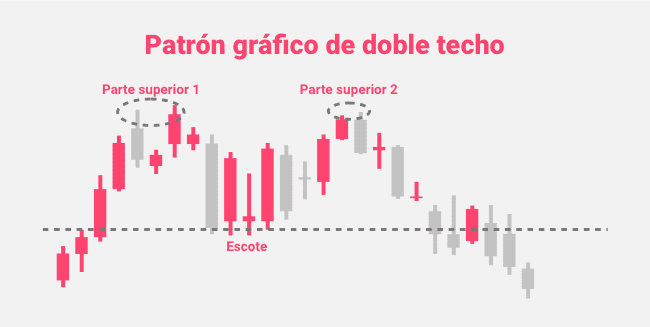
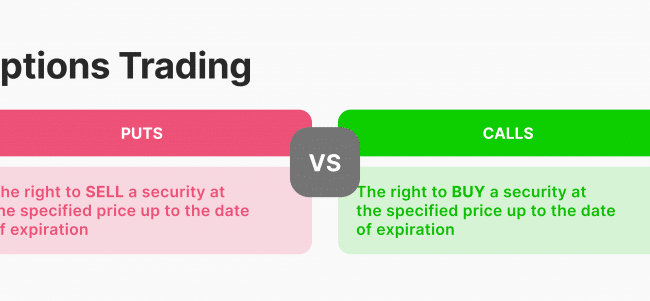
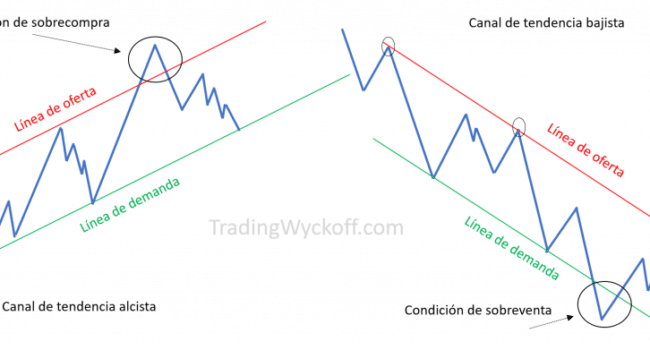
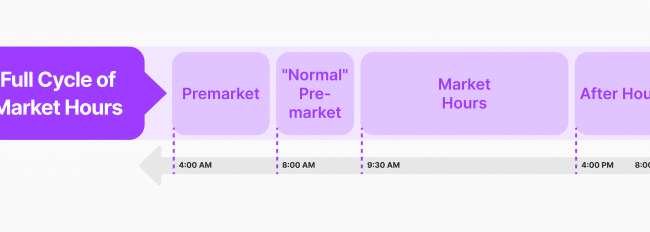
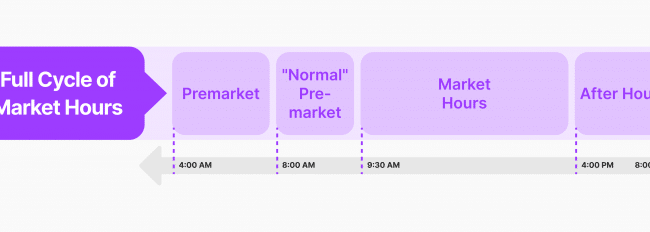
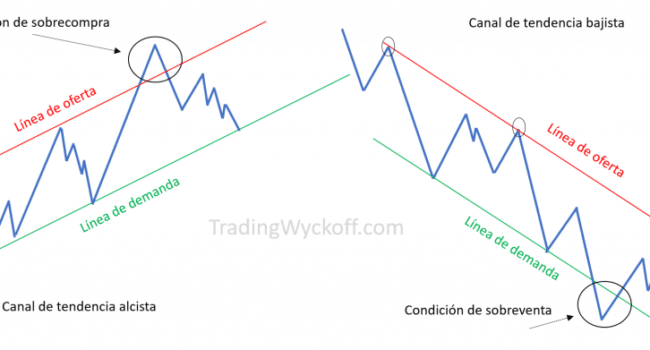
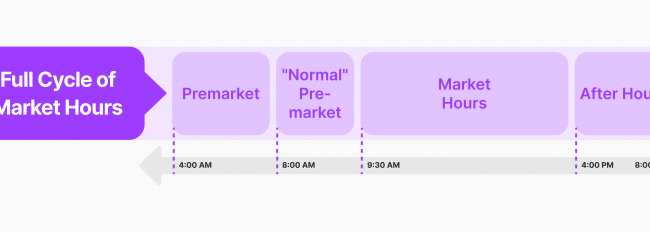


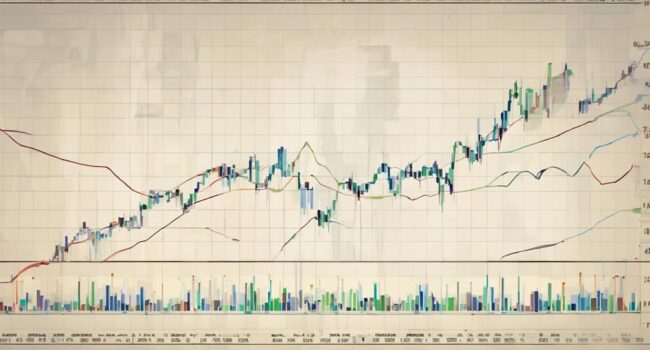

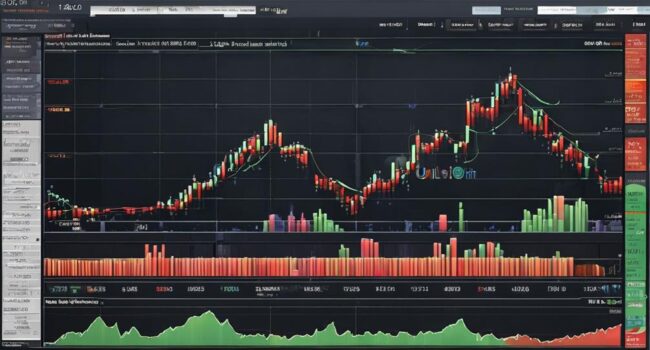

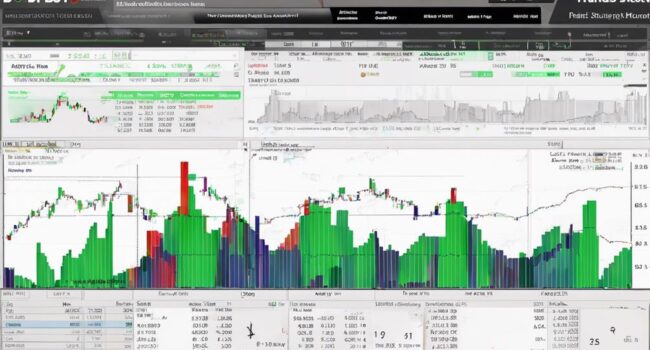
También te puede interesar: